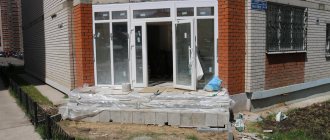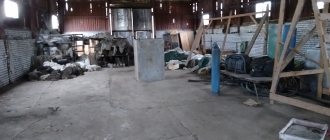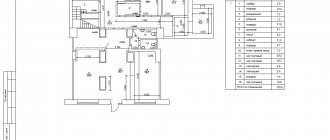Entrepreneurs who are owners or tenants of premises often have to deal with the fact that the intended purpose of the premises does not at all coincide with the type of their activity, and choosing the location of, for example, an office depending on the purpose of the premises is not always convenient.
The legislation of the Russian Federation establishes that any premises must be used exclusively in accordance with its purpose. Hence the question of how to change the purpose of the premises.
In theory, changing the purpose of a room is quite possible, however, in practice, you will probably encounter some difficulties.
How is the purpose of non-residential premises determined?
Information about the purpose of the premises is entered into the real estate cadastre. But the law specifies only two types of premises - residential and non-residential (Clause 10, Part 5, Article 8 of the Law on State Registration of Real Estate).
The law does not provide for the classification of non-residential premises by purpose. Based on the actual purpose of non-residential premises, the following can be distinguished among them:
— trading;
- warehouse;
— educational and scientific premises;
— premises of industrial enterprises, etc.
This classification is proposed as an example in paragraph 21 of the Letter of the Ministry of Housing and Utilities of the RSFSR dated 03/09/1977 N 15-1-103 “On the classification of premises of civil buildings”. However, it is not mandatory.
In this regard, and based on the essence of non-residential premises, we believe that the intended purpose of non-residential premises is its purpose for purposes not related to the permanent residence of citizens.
And the owner can determine specific goals at his own discretion, if they correspond to the purpose of the premises as non-residential and do not violate the requirements and norms.
Also, the intended purpose of non-residential premises can be established by the parties to the contract.
For example, when renting premises. This possibility follows from the right of the parties to agree on the terms of use of the leased property and the general principle of freedom of contract.
For example, the contract may provide that the premises are intended to house a store or office. Then the tenant is obliged to use the rented premises in accordance with the terms of the agreement (clause 4 of article 421, clause 1 of article 615 of the Civil Code of the Russian Federation). And violation of this duty may lead to negative consequences for him.
Why change the purpose of a living space?
If you are an entrepreneur and purchased real estate in an apartment building, then you must use it in accordance with its intended purpose - for living.
If you plan to use the apartment as an office or some kind of industrial premises, then you simply need to transfer it from residential to non-residential.
If you do not do this, you will face the following sanctions:
- Refusal to receive a tax deduction for purchased real estate;
- Fine from the housing inspection;
- Neighbors or administration going to court to force you to use the residential premises for their intended purpose, or to sell it;
- Forced sale of premises by court decision.
Agree, a refusal to receive a tax deduction in this case or a fine is the least of the troubles, therefore, you should not take risks - make sure that the purpose of the premises in the apartment corresponds to the type of your activity.
How to change the purpose of non-residential premises
If you want to change the purpose of non-residential premises to residential, follow the transfer procedure established for this.
And if you want to change the purpose of non-residential premises agreed upon in the contract (for example, a lease), proceed in the same manner as you can change the terms of the contract.
In particular, in order to change the purpose of the premises defined in the contract by agreement of the parties, you can prepare a draft of such an agreement and send it to the counterparty with a covering letter.
As a general rule, an additional agreement must be concluded in the same form as the agreement, and if you make changes to a registered agreement, then the agreement must also be registered (clause 2 of article 164, clause 1 of article 452 of the Civil Code of the Russian Federation).
Please note: if we are talking about renting non-residential premises owned by a public entity, you should also be guided by regional regulations.
In particular, administrative regulations governing relevant relations. They may provide for special requirements for an application or request to change the purpose of the rented premises, documents attached to it, etc.
Procedure for changing the purpose of residential real estate
The first thing you need to do is make sure that the property you purchased meets the following criteria:
- There is an opportunity to equip a separate exit from the apartment to the street;
- This must be an isolated and independent room, i.e. it is impossible to change the purpose of parts of the premises, for example, a room;
- The apartment must be on the ground floor of the house, or there should be no other residential premises located underneath it;
- The house in which the premises are located should not be considered dilapidated or unsafe;
- There cannot be any encumbrance on the premises, no one can be registered in it, it should not be the subject of contracts.
If everything is in order and the premises meet the specified criteria, the next step is to obtain the consent of all apartment owners to change the use of the premises.
This is necessary because you will probably have to do some redevelopment, use the common local area for parking and make other changes to the general way of life.
In order to obtain the consent of the owners, you need to organize a general meeting and at it tell in detail about your plans, and then collect signatures on consent to make changes.
Then, if you need to arrange a separate entrance, you need to collect a package of documents for approval of the redevelopment.
You will need to attach drawings, diagrams, plans, approvals and technical solutions to this package.
The project is agreed upon by all major authorities:
- sanitary-epidemiological,
- fire department,
- housing commission, etc.
You submit the agreed upon redevelopment project, certificate of ownership, charter of the company and its constituent documents, certificate of registration with the tax authorities, extract from the Unified State Register of Legal Entities and passport to the local administration. Based on your application to change the purpose of the premises, a decision is made within 45 days.
If the decision is positive, then the final stage is to apply to the State Register authorities for a new certificate of ownership of non-residential premises.
How to change the functional purpose of non-residential premises?
Today, most non-residential premises have a free purpose. This means that they can be used as medical premises, special purpose premises, office premises, industrial premises, etc.
However, in some cases, situations still arise when the purpose of a commercial premises does not correspond to the specifics of the organization’s activities. In this case, in order to conduct legal activities, you need to change the purpose of the premises.
In order to change the purpose of non-residential premises, you should prepare a package of the following documents:
- Original or certified copy of title deed or lease agreement;
- Constituent documents and charter of the company;
- Extract from the Unified State Register of Legal Entities;
- Certificate of tax registration;
- Certificates of absence of any debts for utilities, rent;
- Certificate of cadastral value of the property;
- Plan and technical description of the premises and the entire building in which the premises are located;
- If the premises are rented - a notarized permission from the owner to change the purpose of the premises;
- Premises redevelopment project;
- Application for redevelopment;
These documents are submitted to the local administration, where they are reviewed within 45 days.
After this, you will be given an approval act, which must be signed by all authorized authorities; their list is given in the act itself.
Once the act has been approved, you can proceed directly to the redevelopment.
After completion of all work on the project, it is necessary to invite the acceptance committee and sign with it an act confirming the compliance of all work with the project.
One of the final stages is receiving a positive decision from the regional commission on reprofiling.
If everything is in order with the documents you collected and the change in the purpose of the premises does not entail any undesirable consequences for others, then a positive decision will be made on your application.
Well, based on the changes that will be made to the technical and cadastral documents, corresponding changes are made to the Unified State Register of Rights to Real Estate.
056
What are the consequences of using non-residential premises for other purposes?
This depends on whether the trespasser is the owner or a person who is otherwise using the premises, such as a tenant.
Consequences of the owner using non-residential premises for other purposes
The owner's liability for the use of non-residential premises other than for its intended purpose (for example, for the residence of citizens) is not provided for by law. But consequences may occur if such actions lead to other violations.
Thus, if the use of non-residential premises does not correspond to the intended purpose of the premises itself, but of the land plot under the building in which the premises are located, then liability may arise for the inappropriate use of the land plot. For example, according to Part 1 of Art. 8.8 of the Code of Administrative Offenses of the Russian Federation - in the form of an administrative fine.
In judicial practice, one can find the position that the building, of which the premises are a part, is firmly connected to the ground. And the norms of land legislation oblige the entire land plot to be used for its intended purpose (clause 1 of Article 130 of the Civil Code of the Russian Federation, Determination of the Supreme Court of the Russian Federation dated October 21, 2019 N 308-ES19-10562).
It is also possible that the use of the premises affects the rights of the owners of other premises in the same building.
They may demand that violations be eliminated (Article 304 of the Civil Code of the Russian Federation).
The Supreme Court of the Russian Federation, when considering one of the cases, came to this conclusion in a situation where the owner of a residential premises, after its transfer to non-residential premises, used it for a purpose other than that specified during the transfer (instead of a beauty salon, a store selling alcohol was opened on the premises).
At the same time, the court took into account that the use of the premises for another purpose affects the rights of the owners of residential premises in an apartment building, and is also associated with the use of common property in it (Definition of the Supreme Court of the Russian Federation dated August 28, 2018 N 83-КГ18-13).
A special situation is if the non-residential premises are used by the tenant for other than their intended purpose. Let's consider what consequences this entails for him.










